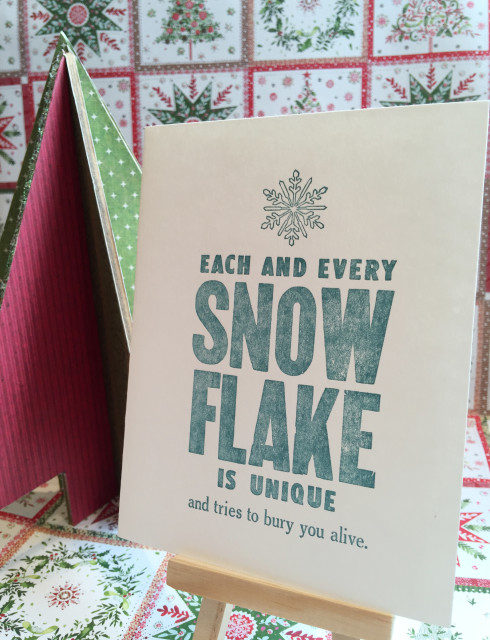2016 was the year when I lost a number of friends.
No, not to death (though that happened as well).
No — to something deeper. They became Facebook frenemies.
I am talking about my fellow Jews who are so right wing that they simply cannot argue with anything regarding civility.
It’s not just me. One friend was attacked as “just another brainwashed New Yorker.” Another friend who opposed Trump learned that his opposition qualified him to be “a friend of the mullahs.”
But here is a new one for me. Several weeks ago, someone called me a “snowflake.” It was because I had opposed some of the ways our president-elect had expressed himself on certain issues.
So, apparently, we are now in the “snowflake generation.”
The term was one of Collins Dictionary’s 2016 words of the year — today’s young adults, viewed as being less resilient and more offense-prone than previous generations.
The Financial Times defined it as “a derogatory term for someone deemed too emotionally vulnerable to cope with views that challenge their own, particularly in universities and other forums once known for robust debate” and noting that the insult had been aimed at an entire generation.”
Pop star Sky Ferreira put it this way, railing against “little snowflake justice warriors”:
Oh, little snowflakes, when did you all become grandmothers and society matrons, clutching your pearls in horror at someone who has an opinion about something, a way of expressing themselves that’s not the mirror image of yours, you snivelling little weak-ass narcissists?
I agree – we are coddling our young people too much. We have been much too eager to protect them from ideas that they might find disturbing or challenging – particularly in university environments where, in fact, they should be challenged.
And, by the way: right wingers also don’t like their ideas being challenged. Just sayin’.
But, it’s that term “snowflake” that bugs me.
Here is why. The term probably began with the novel and hit film Fight Club — about, well, a fight club for men who are into recreational violence. Fight Club includes the line: “You are not special. You are not a beautiful and unique snowflake.”
“Snowflake” is actually not intended to evoke uniqueness.
It is intended to evoke delicacy and beauty.
When you attack someone as a “snowflake,” you’re attacking the “snowflake’s” masculinity – yes, even if the alleged “snowflake” is a woman!
We are in the midst of a new kind of culture war – a war that has been brewing for decades and which now finally has its political ramifications.
Hillary vs. Donald – a woman vs. a man.
On one side — a woman who was sometimes attacked as being insufficiently feminine. Conservative pundits repeatedly assailed her as an ambitious she-beast. Tucker Carlson called Mrs. Clinton “castrating,” a proverbial fear for most American men.
And, on the other side – a man who made a constant show of machismo. Urging violence against demonstrators; belittling a handicapped reporter; infamous boasts of sexual conquests, including the grabbing of women’s private parts — which he consigned to “locker room talk.”
In other words, boys will be boys.
And the Jews? We are playing this game as well.
On one side, those who lean to the left: conscious of social justice; trafficking in empathy; ready to see nuance and perspective – in short, the sensitive.
And on the other side: a machismo Jewish culture, which sees occupation and settlement as not only political prerogative, but (yes, subtly) as a gender-based prerogative as well.
In Bibi Netanyahu, Donald Trump has met his macho match. Throw in Putin and you might get, well, a fight club.
From the vantage point of traditional Jewish teachings on masculinity, this is just all wrong (I wrote about this – here and here)
What has it meant to be be a man – Jewishly?
It has meant a culture of Torah rather than toughness; Jewish men are more likely to do battle with their minds and mouths than with their fists. Yes, that means seeking nuance.
It has meant a culture of ethics; “be a mensch” is not the same as “be a man.”
And it has meant a culture of feelings. Traditional macho culture has said: “Take it like a man.” Don’t betray your feelings. Contrast that to the men in the Torah. Abraham, Jacob, Esau (yes, even that biblical macho man), Joseph: all of them cry.
Let’s be clear: when we call someone a “snowflake,” we are calling them (yes – even women!) “sissies,” or “faggots.”
Are we entering a period of malignant American masculinity?
Oy.






